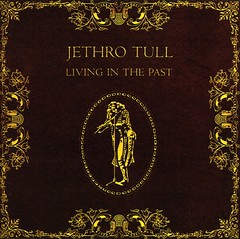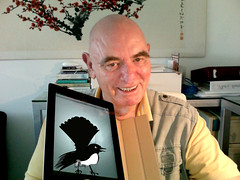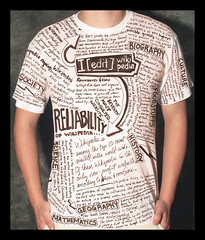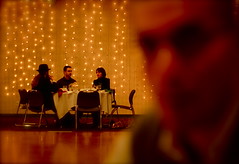Happy Canada Day, everyone! For those of you who don't know, I'm a Canadian and have lived in Canada all my life but for a handful of years living in NJ and working in NYC. As is typical, I'm, by default, proud of my country but I've hardly experienced the rest of the world so I can hardly compare really. And, as all Canadians do, I have experienced a pile o' American culture (through TV, movies, books, music, etc.) so I'm heavily influenced by all that despite being part of that culture.
From the Canadian Heritage site on the "
History of Canada Day", you can see that Canada Day was originally called Dominion Day, based on the day of the 'creation' of the "Dominion of Canada" by the British North America Act on July 1, 1867. In a way, Canada Day is Canada's birthday so happy 147th birthday, Canada!
So what does Canada 'mean'? Well, according to that vignette that Canadians saw on TV (in, what, the eighties?) the word "Canada" comes from a misunderstanding of the Iroquois word, "kanata" or village. (You can also look
here and
here.) But what does the country named Canada mean? What is different about it? Well, not much, at least in comparison with the United States. I would say that, at least in southern Ontario, Canadian culture is much the same as American culture, particularly the US east coast and the midwest. We're pretty white, quite materialistic, like our franchised restaurants, based primarily on European culture and Britain in particular, reasonably well-off compared to much of the rest of the world, youngish (only 147 years old), and individualistic. I get the feeling that we're a little more European, socialist, and calm when compared to the US, and we certainly aren't as militaristic or politically active as Americans. We have plenty and enjoy plenty of British imports like our chocolate/candy bars and TV like Coronation Street. It's hard for me to compare Canada and Canadians with the rest of the world other than saying we're similar to the US so I'm not going to even try.
The other regions of Canada have some other unique cultures that, although I haven't experienced directly, I am aware of the basics and the stereotypes. Quebec is francophone which brings with it cultural behaviours related to France, Catholocism, and a feeling of independence when defending against the encroaching anglophone culture from the States and the rest of Canada. Eastern Canada borrows more from Irish and Scottish culture (as opposed to the English cultural background in Ontario), and IMHO is a little more safe from American influence. The Prairie Provinces have a lot of similarity with the American Midwest in that they tend to be more rural and conservative. I would suspect that much of BC is the same except for the more urban Vancouver area which I've been told is similar to the American West Coast. Vancouver is like Canada's California... damn hippies. lol And the northern territories are also very rural in terms of culture by necessity but also quite influenced by native culture.
(Of course, much of what I've included here is based on very little direct experience of the people or living in the area so please correct me if I've painted incorrect or overly broad strokes on the different regions of Canada.)
I like living in Ontario, Canada. Weather is a nice mix between snow and cold in the winter (down to about -30 to degrees Celsius, though it does regularly get down to -40 in northern Ontario and probably lower) and pretty hot in the summer (upwards of maybe 30 degrees Celsius). And we don't tend to have extreme and dangerous weather like tornadoes (although there was a bit of tornado damage a couple months ago in Toronto), hurricanes, floods, tidal waves (we're well inland expect for four of the five largest lakes in the world), landslides, etc. Cold tends to be the worst weather extreme that we have and that can certainly take its toll in terms of hypothermia, damage to power lines and roads, difficulty in travelling, etc. But I'd rather have too much cold than, say, earthquakes.
What is Canada to you? Or, at least, what is YOUR part of Canada to you?










